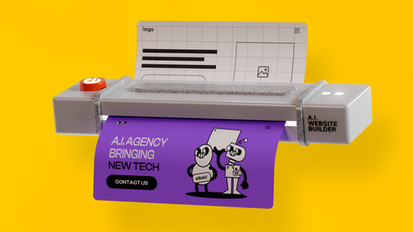Getting Started with Cleaning Website Template Hosting
A Beginner’s Guide to Cleaning Website Template Hosting
Cleaning Website Template Hosting
In today’s digital age, having a strong online presence is essential for businesses and individuals alike. Whether you are looking to create a personal blog, launch an e-commerce site, or establish an online portfolio, finding the right web hosting provider is crucial for ensuring your website is secure, reliable, and easily accessible to users. With so many web hosting options available on the market, it can be overwhelming to choose the best provider for your needs. In this article, we will compare various web hosting options and help you make an informed decision.

Cleaning Website Template Hosting Trends
Cleaning Website Template Hosting
First and foremost, it’s important to understand the different types of web hosting available. The most common types of web hosting are shared hosting, VPS (Virtual Private Server) hosting, dedicated hosting, and cloud hosting.
Shared hosting is the most basic and cost-effective form of web hosting, where multiple websites are hosted on a single server. This means that resources such as storage, bandwidth, and processing power are shared among all websites on the server. While shared hosting is suitable for smaller websites with low to moderate traffic, it may not be the best option for high-traffic or resource-intensive websites.
VPS hosting is a step up from shared hosting, where a physical server is divided into virtual servers, each with its own dedicated resources. This provides more control and flexibility compared to shared hosting, making it a good option for websites that require more resources but do not need a dedicated server.
Dedicated hosting involves renting an entire server for your website, giving you complete control over resource allocation and security. This type of hosting is ideal for high-traffic websites or e-commerce sites that require robust security and performance.
Cloud hosting is a newer form of web hosting that utilizes multiple interconnected servers to provide scalable and reliable hosting services. With cloud hosting, resources are distributed across multiple servers, ensuring high uptime and performance. Cloud hosting is suitable for websites that experience fluctuating traffic or unpredictable resource demands.
When comparing web hosting providers, there are several factors to consider:
1. Uptime and reliability: Look for a web hosting provider with a high uptime guarantee, ideally 99.9% or higher. A reliable hosting provider will ensure that your website is always accessible to users.
2. Performance and speed: Choose a hosting provider that offers fast loading times and efficient server performance. Slow-loading websites can deter users and negatively impact your search engine rankings.
3. Security: Make sure the hosting provider offers robust security measures, such as SSL certificates, regular backups, and malware protection, to protect your website from cyber threats.
4. Scalability: Consider whether the hosting provider offers scalability options that allow you to easily upgrade your hosting plan as your website grows.
5. Customer support: Look for a hosting provider that offers responsive customer support, preferably 24/7, to address any technical issues or concerns that may arise.
Now, let’s compare some popular web hosting providers:
1. Bluehost: Bluehost is a well-known web hosting provider that offers a range of hosting options, including shared, VPS, and dedicated hosting. Bluehost is known for its reliable uptime, fast loading times, and excellent customer support. Pricing starts at $2.95 per month for shared hosting.
2. SiteGround: SiteGround is another popular web hosting provider that is known for its high performance, security features, and responsive customer support. SiteGround offers shared, VPS, and cloud hosting options, with pricing starting at $6.99 per month for shared hosting.
3. HostGator: HostGator is a budget-friendly web hosting provider that offers a variety of hosting plans, including shared, VPS, and dedicated hosting. HostGator is known for its easy-to-use interface, uptime guarantee, and affordable pricing. Shared hosting plans start at $2.75 per month.
4. A2 Hosting: A2 Hosting is a high-performance web hosting provider that offers a range of hosting options, including shared, VPS, and dedicated hosting. A2 Hosting is known for its fast loading times, excellent uptime, and developer-friendly features. Shared hosting plans start at $2.99 per month.
5. InMotion Hosting: InMotion Hosting is a reliable web hosting provider that offers a variety of hosting plans, including shared, VPS, and dedicated hosting. InMotion Hosting is known for its fast loading times, excellent customer support, and free website migration services. Shared hosting plans start at $6.99 per month.
Importance of Web Hosting
Web hosting is essential for any website to be visible on the internet. Without web hosting, your website would not be accessible to users. When you sign up for a web hosting service, you are essentially renting server space where your website files are stored. The web hosting provider ensures that your website is available to users 24/7, and also provides technical support and maintenance services to keep your website running smoothly.
Another important aspect of web hosting is website speed and performance. The speed at which your website loads can have a significant impact on user experience and search engine rankings. A reliable web hosting provider will ensure that your website loads quickly and is accessible to users across the globe. In addition, web hosting providers offer security features such as SSL certificates and regular backups to protect your website from cyber threats and data loss.
Different Types of Web Hosting
There are several types of web hosting services available, each with its own set of features and benefits. The most common types of web hosting are:
1. Shared Hosting: Shared hosting is the most basic and affordable type of web hosting. In this setup, multiple websites share the same server resources, including storage space, bandwidth, and CPU power. Shared hosting is ideal for small businesses and individuals with low traffic websites.
2. VPS Hosting: VPS (Virtual Private Server) hosting is a step up from shared hosting. In VPS hosting, websites are hosted on virtual servers that mimic dedicated servers but share server resources with other websites. VPS hosting offers more control and customization options compared to shared hosting.
3. Dedicated Hosting: Dedicated hosting provides users with their own physical server. This type of hosting is ideal for websites with high traffic and resource-intensive applications. Dedicated hosting offers the highest level of performance and security but is also the most expensive option.
4. Cloud Hosting: Cloud hosting is a flexible and scalable hosting solution that utilizes cloud infrastructure to host websites. In cloud hosting, websites are hosted on a network of virtual servers that can be easily scaled up or down based on demand. Cloud hosting is a cost-effective option for websites with fluctuating traffic levels.
Factors to Consider When Choosing a Web Hosting Provider
When choosing a web hosting provider for your website, there are several factors to consider to ensure that you are getting the best service for your needs. Some of the key factors to consider include:
1. Reliability and Uptime: It is crucial to choose a web hosting provider with a proven track record of reliability and uptime. Look for providers that guarantee uptime of at least 99.9% and have robust infrastructure to prevent downtime.
2. Performance and Speed: Website speed and performance are critical for user experience and search engine rankings. Choose a web hosting provider that offers fast servers and optimized performance for your website.
3. Security Features: Security is a top priority for websites, especially those that handle sensitive information. Look for web hosting providers that offer SSL certificates, regular backups, and other security features to protect your website from cyber threats.
4. Customer Support: If you encounter technical issues or need assistance with your website, reliable customer support is essential. Choose a web hosting provider that offers 24/7 support via multiple channels such as phone, email, and live chat.
5. Pricing and Plans: Compare pricing and features across different web hosting providers to find a plan that fits your budget and needs. Consider factors such as storage space, bandwidth, and scalability when choosing a hosting plan.

What Is Cleaning Website Template Hosting?
Cleaning Website Template Hosting
In conclusion, there are many website building sites available that make it easy for anyone to create a professional-looking website. Whether you are a small business looking to establish an online presence or an individual looking to showcase your work, there is a website building site that is perfect for you. Consider trying one of the sites mentioned above to create a stunning website that will help you reach a wider audience and achieve your goals online.


